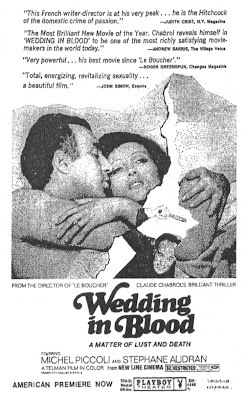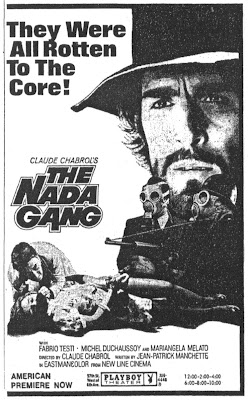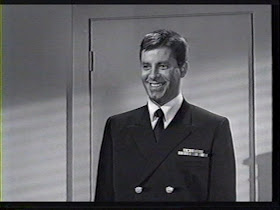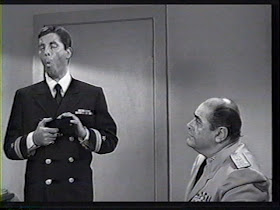“Jerry Lewis is the only American director who has made progressive films…He was much better than Chaplin and Keaton.” – Jean-Luc Godard
“Quite apart from his gifts as a performer, Mr. Lewis is one of the best directors working in America today.” –
London Times
In the late 1960s, when he was an adjunct professor at the University of Southern California, Jerry Lewis recorded all of his graduate level lectures on filmmaking and later transcribed, edited, and arranged the material -- over 480 hours and half a million feet of audio tape -- into a book that was published by Random House in 1971,
The Total Film-Maker. A must-read for Jerry fans, and recommended to anyone else with a passing interest in film production and big screen comedies,
The Total Film-Maker is split into sections covering every phase of the filmmaking process, from script and casting to editing and even critical reception. Jerry also gives props to other filmmakers of the period that he feels are "total film-makers" including Arthur Penn, Norman Jewison, Larry Peerce, John Cassavetes and Ralph Nelson. The excerpts below should give you a better idea of the book's contents.
“Charlie Chaplin was the first great total film-maker, but in the last thirty seconds of MODERN TIMES, one of his finest efforts, he made a direct reverse. It stopped the audience cold out of confusion. I have no knowledge why he did it, but assume it was simply a mistake.” (p. 125)
“I have a confession. Crazy. I have perched in a cutting room and licked emulsion. Maybe I thought more of me would get on to that film. I don’t know. I do know that plumbers don’t lick their pipes. With emulsion, it’s easy to get turned on.” (p. 5)
“Breaks will come to the young film-maker, but unless he possesses at least rudimentary knowledge they will be of little use to him. Recently I saw a film made by a twenty-one-year-old, Steven Spielberg. It was twenty-four minutes of film called
Amblin, produced for around $17,000. It rocked me back. He displayed an amazing knowledge of film-making as well as creative talent. He was signed to a director’s contract with Universal. Even at twenty-one, he was ready when the break came.” (p. 206)
“I believe that the quickest way to find out your capacity for being a total film-maker is to determine whether or not you have something to say on film. If the answer is negative, I suggest saving grief and dropping out. Total film-making requires the definite point of view. Of course, an awful lot is meant to be said in many films, mine included, that doesn’t get across. That’s no crime. The crime is starting out by having nothing to say.”
(p. 22)
“The selection of lenses is determined by angles and subjects. A low angle on a woman often distorts. They are tough to shoot. The best way to photograph a woman is dead-on and close. Unless you are in a master and have eighteen people, nothing less than a 40 should be used on women. Cast a pretty girl, use a 35 on her, and she’s apt to look like Ma Kettle. For reasons unknown, women distort easier than men.” (p. 93)
“Some writers work in master scene formats. The word
camera or suggestions on how to use the camera do not appear in the script. They write a play for screen use. Others belabor their scripts with endless descriptions and camera placement to the point where the visual aspect blurs the basic story. I’m more interested in the purpose of the scene. Never mind the camera.” (p.50-51)
“The director’s first cut should be gold. No one can do it for him because no one else can truly get into his mind. If he doesn’t know how to make that first cut, he really doesn’t know how to shoot the movie. Unless it all comes down to the movieola, masters, singles, over-ons, tonality of scenes and attitudes of actors, there is no reason for him to be assigned. When a studio takes a film away from a director it is usually a sign that he shouldn’t have been hired in the first place.” (p. 138)
“When Judith Anderson did CINDERFELLA for me, playing the nasty stepmother, she fell in love with a dress that I’d had made for her role. I think it was a $900 dress. I gave her the dress with a card, “To a lovely lady.” Often you permit a player to buy his clothes. This was a gift. Soon after, she went on the road to do
Madea in sixty-five cities. For nine months of the tour she did television interviews in every city, always remembering to talk about CINDERFELLA. To buy that exposure would have cost about $600,000. I estimate she gave us an additional half million dollars at the box office.” (p. 65)
“I have been in the throes of trying to buy
The Catcher in the Rye for a long time. What’s the problem? The author, J.D. Salinger! He doesn’t want more money. He just doesn’t even want to discuss it. I’m not the only Beverly Hills resident who’d like to purchase Salinger’s novel. Dozens have tried. This happens now and then. Authors usually turn their backs on Hollywood gold only because of the potential for destruction of their material. I respect them for it! Why do I want it? I think I’m the Jewish Holden Caulfield. I’d love to play it!” (p. 47)
“Some directors have wonderful tricks and devices for pulling performances. Norman Taurog is an expert. When he wanted to make me cry, he’d take me into a corner and ask me to think about what would happen if my little boy was hit by a truck.” (p. 71)









































































